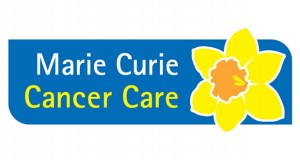End Of Life Report Fails To Address The Need For Better Community Care, Says Sweettree Founder
 The second national audit to be carried out into the care of those who are dying in hospitals in England has been released today by charity Marie Curie and NHS England. Despite saying broad improvements have been made since 2013, the report says too many people are still not receiving proper palliative care in their final hours.
The second national audit to be carried out into the care of those who are dying in hospitals in England has been released today by charity Marie Curie and NHS England. Despite saying broad improvements have been made since 2013, the report says too many people are still not receiving proper palliative care in their final hours.
While the report has been welcomed for highlighting the broader issue of end of life care, according to Barry Sweetbaum, managing director of SweetTree Home Care Services, it fails to address the true needs of those approaching end of life, or to look at ways to reduce the number of deaths occurring in hospital by improving care provided in the community.
“Today’s report highlighting the need for more palliative care professionals in hospitals must be welcomed, however it falls vastly short of addressing the true needs and wishes of those approaching end of life,” Barry commented.
“What is lacking most is care being delivered in a person-centred, efficient and effective way. Those reaching end of life frequently wish to have the choice to die at home. But all too often that is extremely difficult to achieve, due to the narrow focus taken in relation to the planning and professionalisation of care in the community. Yet that is exactly where the attention and resources referred to in the report need to be directed.”
He continued: “At SweetTree, we fully support the view that more palliative care professionals are required to help those who do need or wish to be in hospital. However, we believe that a huge amount of money would be saved, hospital admissions avoided and better quality support delivered to individuals, if more funding was available for specialists in the community.
“The report states that nearly half of all deaths in England occur in hospitals, which means it is only looking at half the picture. The end of life care received by people outside of a hospital setting equally needs to be assessed.”
One recommendation made in the report is that all trusts should provide access to specialist palliative care services 9am to 5pm, 7 days a week, which Barry points out seems strange to suggest when end of life requirements are unlikely to always fall neatly within ‘normal’ hours.
Barry added: “For me, this is a very personal issue. In my early 20s my mother had cancer and died comfortably in her own bed with her family around her. This was possible because we had a specialist support worker named Margie who looked after my mother and helped her and us to overcome the challenges which arise when someone approaches their end of life.
“If Margie was not a palliative care specialist she would not have been able to help my mother, or our family, as she did and my mother’s last days would have been in an unfamiliar hospital surrounded by people and objects she had no relationship to.”
Barry concluded: “It is because of my own experiences and the experiences we have had with the clients we support, that we are so passionate about this issue and the need to get it right.
“At SweetTree we offer those approaching end of life the support of specialist palliative carers, who have the training and experience necessary to help them and their family through this difficult time. Our carers in turn are supported by SweetTree care managers, who liaise closely with the NHS community palliative care nurse teams. All our palliative care support team members have all gone through the End of Life Gold Standard’s Framework training and work under our in-house palliative care specialist, Polly Landsberg, to ensure that the most compassionate and appropriate care and support is provided at all times.
“It is never going to be an easy time, but it can be made more comfortable with the right type of care and support in place, delivered in the way families choose.”






